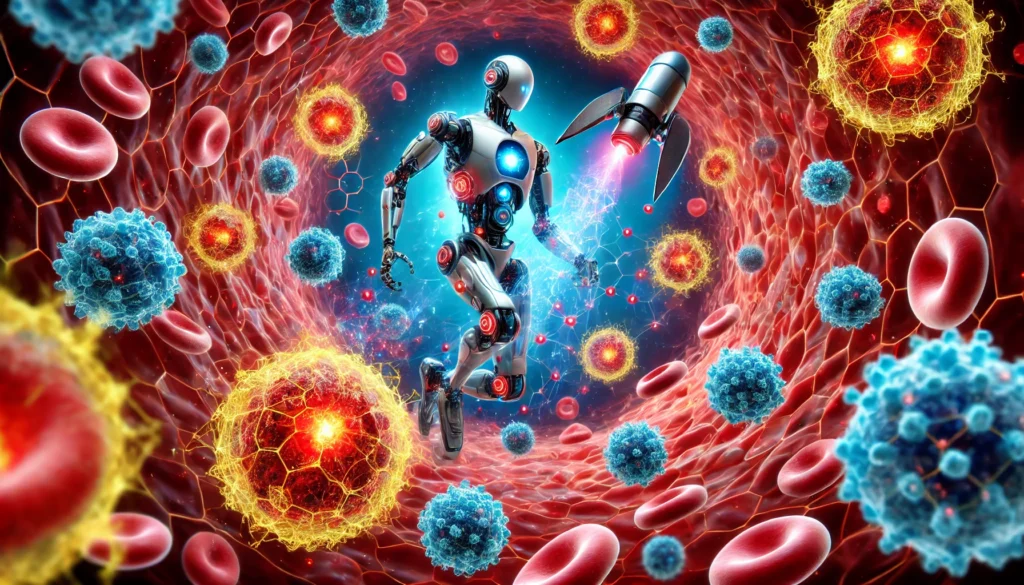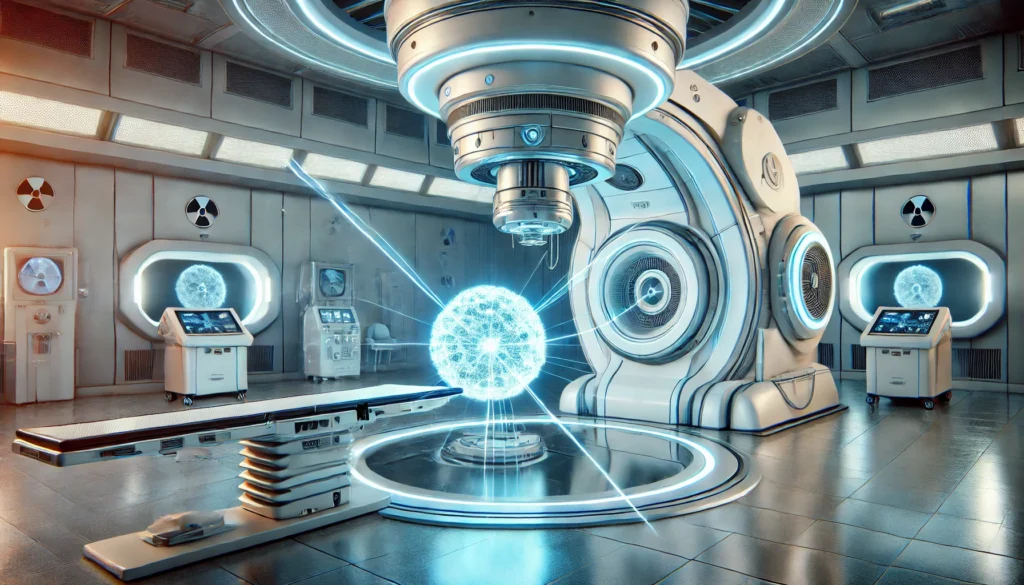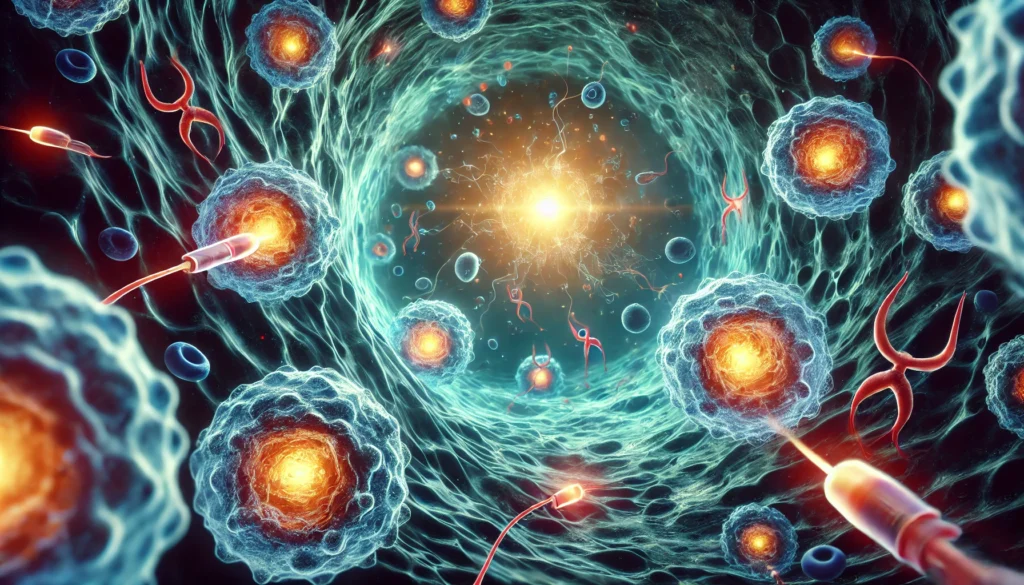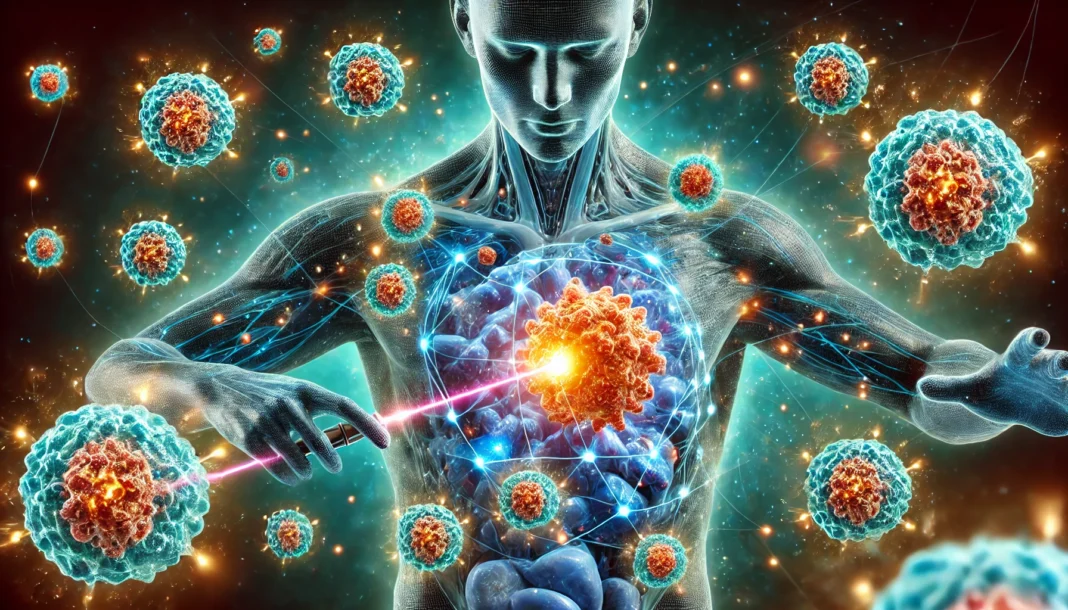Introduction
Cancer remains one of the most formidable challenges in modern medicine, affecting millions of lives globally. Despite advances in early detection, treatment, and supportive care, many forms of cancer remain resistant to conventional therapies, necessitating continuous research into novel approaches. The emergence of a new cancer medication can dramatically alter the treatment landscape, offering fresh hope to patients who have exhausted existing options. In recent years, innovative cancer drugs have targeted tumor biology with greater precision, leveraging mechanisms such as immunotherapy, targeted therapy, and personalized medicine. As researchers push the boundaries of medical science, the development of a new cancer drug has the potential to redefine treatment protocols, improve survival rates, and enhance the quality of life for patients battling this disease.
The rapid evolution of oncology treatments underscores the importance of understanding how new cancer drugs work, their mechanisms of action, and their impact on patient outcomes. This article explores the latest breakthroughs in cancer treatment, delves into the science behind emerging medications, and assesses their potential in reshaping the future of cancer care. By examining the clinical research, real-world applications, and regulatory considerations, we provide a comprehensive analysis of how these advancements can influence both current and future cancer therapies.
You May Also Like: List of New Medications: Breakthrough Treatments and Innovations in Modern Medicine
The Evolution of Cancer Treatment
Historically, cancer treatment has undergone significant transformation. From ancient herbal remedies to the cutting-edge precision medicine of today, oncology has evolved through trial and scientific progress. The earliest cancer treatments were rudimentary, focusing primarily on surgical removal of tumors without understanding the underlying disease mechanisms. In the 20th century, the advent of chemotherapy revolutionized cancer care by introducing drugs capable of targeting rapidly dividing cancer cells. However, these treatments often came with severe side effects due to their impact on healthy cells.
Radiation therapy, another significant milestone, provided localized treatment options that could shrink tumors and enhance surgical outcomes. The late 20th and early 21st centuries introduced targeted therapies, which exploit specific molecular abnormalities in cancer cells, minimizing collateral damage to healthy tissues. More recently, immunotherapy has transformed the field by harnessing the body’s immune system to recognize and attack cancer cells, resulting in groundbreaking success in treating previously untreatable cancers.
The development of a new cancer medication today is informed by decades of research and technological advancements. With an emphasis on genetic profiling, artificial intelligence in drug discovery, and biomarker-driven therapies, oncology is progressing toward treatments that offer greater efficacy with fewer adverse effects. The introduction of new cancer drugs is an essential step in this evolution, potentially addressing gaps in current treatment paradigms and offering renewed hope to patients with refractory cancers.

Mechanisms of Action: How New Cancer Drugs Work
Understanding how a new cancer medication functions is critical in assessing its potential impact. Modern cancer drugs are designed to interfere with specific biological pathways essential for tumor growth and survival. Several classes of new cancer drugs have emerged, each with distinct mechanisms of action:
- Targeted Therapy: Unlike conventional chemotherapy, which indiscriminately kills fast-growing cells, targeted therapies attack cancer-specific proteins, enzymes, or genes. Examples include tyrosine kinase inhibitors (TKIs), which block signaling pathways that drive cancer proliferation, and monoclonal antibodies that interfere with cancer cell growth receptors.
- Immunotherapy: This approach boosts the immune system’s ability to fight cancer by targeting immune checkpoints, reprogramming T-cells, or using therapeutic vaccines. Immune checkpoint inhibitors such as pembrolizumab (Keytruda) and nivolumab (Opdivo) have shown remarkable success in treating melanoma, lung cancer, and other malignancies.
- Gene Therapy and CRISPR-Based Approaches: Gene editing technologies like CRISPR-Cas9 offer the potential to correct genetic mutations responsible for cancer, opening new avenues for personalized medicine.
- Antibody-Drug Conjugates (ADCs): These innovative drugs combine targeted antibodies with cytotoxic agents, delivering chemotherapy directly to cancer cells while sparing normal tissues.
- Epigenetic Modulators: These drugs modify gene expression without altering DNA sequences, offering a novel approach to treating cancers driven by epigenetic abnormalities.
The mechanisms underlying these novel drugs illustrate the precision-driven nature of modern oncology. Each advancement represents a step toward more effective, less toxic treatment options, bringing personalized cancer therapy closer to reality.
Clinical Trials and Real-World Impact
Before a new cancer drug reaches patients, it undergoes rigorous clinical trials to evaluate its safety, efficacy, and potential side effects. Clinical trials are conducted in multiple phases:
- Phase I: Tests safety, dosage, and initial effects in a small group of patients.
- Phase II: Assesses efficacy and side effects in a larger group.
- Phase III: Compares the new drug with standard treatments in a diverse patient population.
- Phase IV: Monitors long-term safety and effectiveness post-approval.
The success of a new cancer medication in clinical trials is measured by endpoints such as progression-free survival (PFS), overall survival (OS), and response rates. Real-world data from post-market surveillance further informs treatment guidelines and refinements. Recent breakthroughs, such as chimeric antigen receptor (CAR) T-cell therapy, have demonstrated how new cancer drugs can transform previously fatal diagnoses into manageable conditions.
Challenges and Future Directions
Despite remarkable progress, several challenges persist in developing new cancer drugs. High costs, lengthy approval processes, and the complexity of cancer biology pose significant hurdles. Additionally, resistance mechanisms often emerge, requiring combination therapies or next-generation drugs to sustain effectiveness.
Future directions in cancer treatment focus on refining precision medicine, integrating artificial intelligence in drug discovery, and improving accessibility to groundbreaking therapies. The convergence of genomics, biotechnology, and computational biology is expected to accelerate the discovery of novel cancer drugs, ultimately shaping a new era in oncology.

Frequently Asked Questions (FAQ) About New Cancer Medications
1. What makes a new cancer medication different from traditional treatments?
New cancer medications are designed to be more precise in targeting cancer cells while minimizing damage to healthy tissue. Unlike traditional chemotherapy, which often affects rapidly dividing cells indiscriminately, a new cancer drug may focus on specific molecular markers, genetic mutations, or immune system interactions. Advances in targeted therapy and immunotherapy mean that these drugs can work more efficiently with fewer side effects. Additionally, many modern cancer medications are developed using cutting-edge technologies such as artificial intelligence and computational modeling to improve efficacy and reduce toxicity. This shift towards precision medicine allows for more personalized treatments tailored to the genetic profile of an individual’s cancer.
2. How do new cancer drugs impact patient survival rates?
New cancer medications have significantly improved survival rates for various types of cancer by offering more effective and less toxic alternatives to traditional therapies. For example, immunotherapies and targeted therapies have been particularly successful in extending survival in cancers that were previously difficult to treat, such as advanced melanoma and lung cancer. Many of these drugs not only prolong life but also improve the quality of life by reducing debilitating side effects associated with chemotherapy. Clinical trials have demonstrated that patients receiving novel targeted therapies often experience longer periods of remission compared to those on conventional treatments. As research progresses, the hope is that new cancer drugs will continue to bridge the gap between diagnosis and long-term survivorship.
3. Are there any risks or drawbacks associated with new cancer medications?
While new cancer drugs offer promising advancements, they are not without risks. Some patients may develop resistance to targeted therapies over time, requiring combination treatments or alternative approaches. Immunotherapies can trigger immune-related side effects, where the body’s immune system attacks healthy tissues, leading to complications such as inflammation or organ damage. Additionally, the high cost of new cancer medications can limit accessibility for some patients, creating financial burdens and insurance challenges. Ongoing research aims to mitigate these risks by developing more resilient drug formulations and personalized treatment strategies. Understanding the balance between efficacy and potential side effects is crucial in determining the best course of action for each patient.
4. How does a new cancer medication receive approval for clinical use?
The approval process for a new cancer medication is rigorous and involves multiple stages of clinical trials. Initially, preclinical studies assess the drug’s mechanism of action and safety in laboratory settings. Phase I trials then evaluate safety and optimal dosing in a small group of patients, followed by Phase II trials that assess efficacy in a larger population. Phase III trials compare the new drug to existing standard treatments, analyzing survival rates and potential adverse effects. If successful, the drug undergoes regulatory review by agencies such as the U.S. Food and Drug Administration (FDA) or the European Medicines Agency (EMA). Post-approval, Phase IV studies continue to monitor long-term safety and real-world effectiveness, ensuring that the medication remains beneficial for patients over time.
5. What role does genetic testing play in prescribing new cancer drugs?
Genetic testing is becoming an integral part of cancer treatment, helping oncologists determine which new cancer medication will be most effective for a particular patient. Many modern cancer drugs target specific genetic mutations found in tumors, making genetic profiling essential for selecting the right therapy. For instance, patients with non-small cell lung cancer may undergo genetic testing to identify EGFR or ALK mutations, which can be treated with corresponding targeted therapies. By using precision medicine approaches, doctors can tailor treatments to individual patients, increasing the likelihood of success while reducing unnecessary side effects. As research advances, genetic testing will continue to refine how new cancer drugs are utilized, leading to more effective and personalized treatment plans.
6. How are new cancer drugs changing the landscape of cancer care?
New cancer medications are revolutionizing cancer care by shifting the focus from broad-spectrum treatments to highly specialized approaches. Targeted therapies, for example, block specific proteins that drive cancer growth, while immunotherapies enhance the body’s natural defenses to combat cancer. The introduction of personalized medicine means that treatment regimens can now be customized based on a patient’s genetic and molecular profile. Additionally, advancements in drug delivery systems, such as nanoparticle-based treatments, are making it possible to improve drug absorption and reduce side effects. The continued evolution of oncology drugs is paving the way for more effective, less invasive, and longer-lasting treatment options.
7. Can new cancer drugs be combined with traditional treatments?
Yes, many new cancer drugs are being used in combination with traditional treatments like chemotherapy and radiation to enhance their effectiveness. Some targeted therapies can make cancer cells more sensitive to chemotherapy, increasing its efficacy while lowering the required dosage. Immunotherapies may also be used alongside conventional treatments to improve immune response and reduce tumor resistance. Additionally, combination approaches are often employed to prevent the emergence of drug-resistant cancer cells. Ongoing clinical trials continue to explore innovative combinations that could maximize patient outcomes and offer more comprehensive treatment strategies.
8. What is the future of new cancer medications?
The future of new cancer drugs is promising, with rapid advancements in biotechnology and personalized medicine shaping the next generation of treatments. Researchers are developing more precise therapies that target cancer at the molecular level, reducing side effects while improving efficacy. Artificial intelligence is playing an increasingly important role in drug discovery, helping scientists identify potential compounds faster than ever before. Additionally, the field of cancer vaccines is growing, with experimental treatments aiming to prevent or slow cancer progression by stimulating the immune system. As research continues, the goal is to turn cancer into a manageable condition with long-term treatment options that improve survival and quality of life.
9. How do patients access new cancer medications?
Access to a new cancer drug depends on factors such as regulatory approval, insurance coverage, and clinical trial participation. Many new cancer medications first become available through clinical trials, where eligible patients can receive innovative treatments before they are widely available. Once approved, the availability of a new cancer medication may vary by region, with some countries implementing different pricing and approval timelines. Financial assistance programs and patient advocacy organizations often help bridge the gap for individuals who face high costs. Discussing options with an oncologist is essential for understanding eligibility for new treatments and navigating the healthcare system effectively.
10. What are the challenges in developing new cancer drugs?
The development of a new cancer medication involves significant challenges, including the complexity of cancer biology, high research costs, and lengthy approval processes. Identifying targets for new drugs requires extensive research into the genetic and molecular mechanisms driving cancer, which can take years to fully understand. Additionally, the cost of bringing a new cancer drug to market often exceeds billions of dollars, making pharmaceutical investment a critical factor in drug development. Ensuring patient safety through clinical trials while balancing the need for rapid access to effective treatments presents another major hurdle. Despite these challenges, continued advancements in medical research and technology are driving progress toward more effective and accessible cancer therapies.

Conclusion
The continuous evolution of cancer treatment underscores the importance of innovation in drug development. A new cancer medication has the potential to alter treatment landscapes, providing more effective and less toxic alternatives to traditional therapies. As scientific research advances, the integration of targeted therapies, immunotherapies, and gene-based treatments will continue to redefine oncology, offering hope to patients worldwide. While challenges remain, the relentless pursuit of better treatments and the commitment to patient-centered care will drive the future of cancer therapy, ensuring that new cancer drugs improve both survival rates and quality of life for those affected by this complex disease.
innovative cancer treatments, targeted cancer therapies, precision oncology drugs, breakthrough cancer research, next-generation chemotherapy, immunotherapy advancements, oncology drug development, personalized cancer medicine, novel cancer drug discovery, cutting-edge cancer treatments, advanced oncology solutions, molecular cancer therapy, FDA-approved cancer drugs, experimental cancer medications, tumor-targeting drugs, genetic-based cancer treatments, emerging cancer therapies, oncology clinical trials, pharmaceutical innovations in cancer, future of cancer treatment
Further Reading:
New approaches and procedures for cancer treatment: Current perspectives
Redefining cancer research for therapeutic breakthroughs


